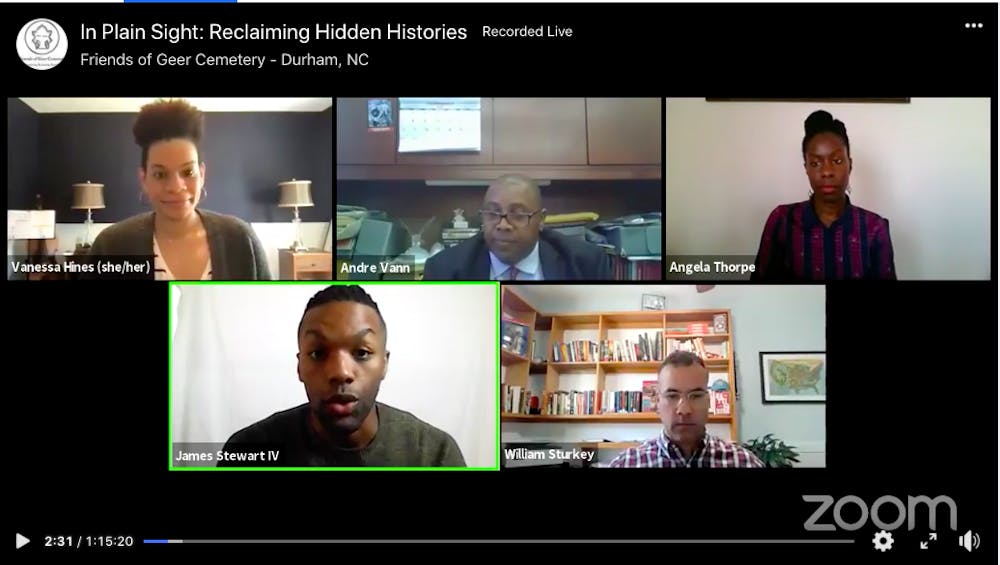Black cemeteries and burial grounds in North Carolina and across the U.S. have historically been neglected and poorly documented. But local community organizations and state government partners are paving the way toward more recognition and resources for Black cemeteries.
The Friends of Geer Cemetery hosted a virtual panel discussion Saturday to discuss the long-standing inequality that surrounds historical Black spaces, like that of Durham's historic Geer Cemetery. The panel was moderated by James Stewart, the vice president of Friends of Geer Cemetery.
The panelists for the event were UNC history professor William Sturkey, N.C. African American Heritage Commission director Angela Thorpe, N.C. Central University head archivist and public historian Andre Vann and Stagville Memorial Project director Vanessa Hines.
At the start of the discussion, Sturkey discussed the historical context of Geer Cemetery, which is almost as old as the city of Durham and was built at the end of Reconstruction in 1877. The people buried in Geer, he said, predate the city of Durham itself.
“Many of the people who actually built Durham itself were Black people,” Sturkey said. “These were the people that actually put their shovels into the dirt, that stacked the bricks, that hammered the nails, that unloaded the lumber, that drove the wagons, that raised the children, that rolled the tobacco."
The cemetery was ignored over multiple decades, Sturkey said, which is part of a larger history of injustice and inequitable distribution of resources.
“Geer is still right there looking at us,” he said. “The Black mothers and sons and daughters of Old Durham are still watching us from their resting places.”
Thorpe said the preservation of Black cemeteries is a national issue, not just one that is specific to North Carolina or Durham.
She said two years ago, the African American Heritage Commission and the State Office of Archaeology launched an initiative to preserve Black cemeteries and burial grounds. Thorpe said one of the initiative’s pilot projects is a push for Milton, North Carolina, to steward a Black cemetery.



